Do you want to keep your vision well into your golden years? Then, it is time to take a keen look at your eye care routine to see eyecare mistakes you should look out for this lockdown. There’s no doubt that you use your eyes every waking moment, whether it’s making lunch, driving to work, working in front of a computer, relaxing in front of the TV, or reading a book, your eyes help you steer through the day. Therefore, lockdown or not is there ever a moment you don’t use your eyes?
For the most part, your eyes are working extra-long shifts even while in lockdown, and like any muscle in your body, need rest, relaxation and care. Now ask yourself, are you taking care of your eyes as you should or are you overlooking the fact that your eyes need care?
Lockdown or not given how much you rely on your eyes, it’s important to ensure that you’re not making eyecare mistakes during your day-to-day life. Sure, it may seem futile to take care of your eyes, especially when you feel nothing is wrong with them, but preventive eye care done now may avert eye problems in the future. As a result, you get to keep your vision not only through lockdown but well into your golden years.
Ordinarily, you might be thinking that I do follow eye care practices, like seeing my eye doctor annually or even wearing protective glasses. But there are so many eye care mistakes that you may not even realize you’re making.
Not sure about whether you’re doing everything right or not. Below are some eye care mistakes to look out for this lockdown.
- Avoid touching and rubbing your eyes hard.
- Avoid staring at electronic devices for long hours.
- Do not sleep with your contact lenses on
- Do not use expired solution, lenses, or drops.
- Ensure you wear safety glasses when the need be
- Avoid overusing redness relief eye drops.
- Get an annual comprehensive eye examination.
Avoid touching and rubbing your eyes hard.
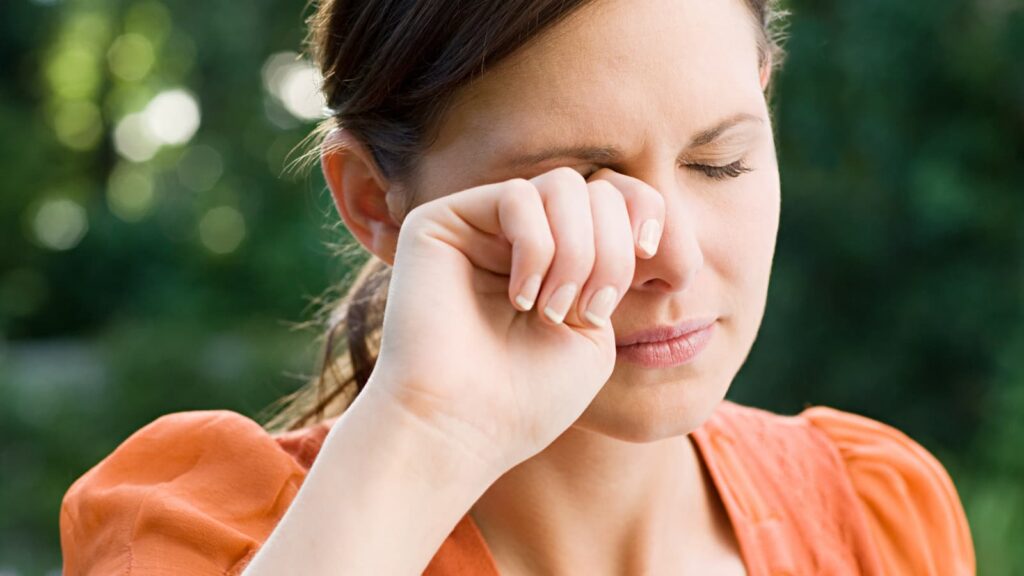
Do you have that uncontrollable itch in your eye? While it may seem harmless enough to rub your eye to calm an itch or when your eyes are tired. It’s best to do this with your lids closed and only touch the outside of your eye. Even so, do this only when you must. Putting a lot of pressure on your eye with vigorous rubbing may break blood vessels and cause inflammation. Also, by touching and rubbing your eyes, you risk transferring germs and dirt from your hands directly to your eyes. So, if you feel the need to touch or rub, make sure your hands are clean first!
Avoid staring at electronic devices for long hours.

We live in a digital world of blue light, emitted by smartphones, tablets, computers and televisions that can be damaging to the eyes. Most times, especially amidst lockdown, we stare at the screen for hours at a time, thereby straining our eyes. Imagine walking or running non-stop for long hours! No doubt your legs would be tired. Same goes for your eyes which work round the clock 24/7. Over time, this could mean eye strain and fatigue, and even head and neck pain. A great way to take a break and reduce eye strain is to follow the 20-20-20 rule: For every 20 minutes of screen time, stare and focus at an object or look into the distance at least 20 feet away, for 20 seconds. Likewise, make sure to blink often to keep your eyes lubricated!
Do not sleep with your contact lenses on
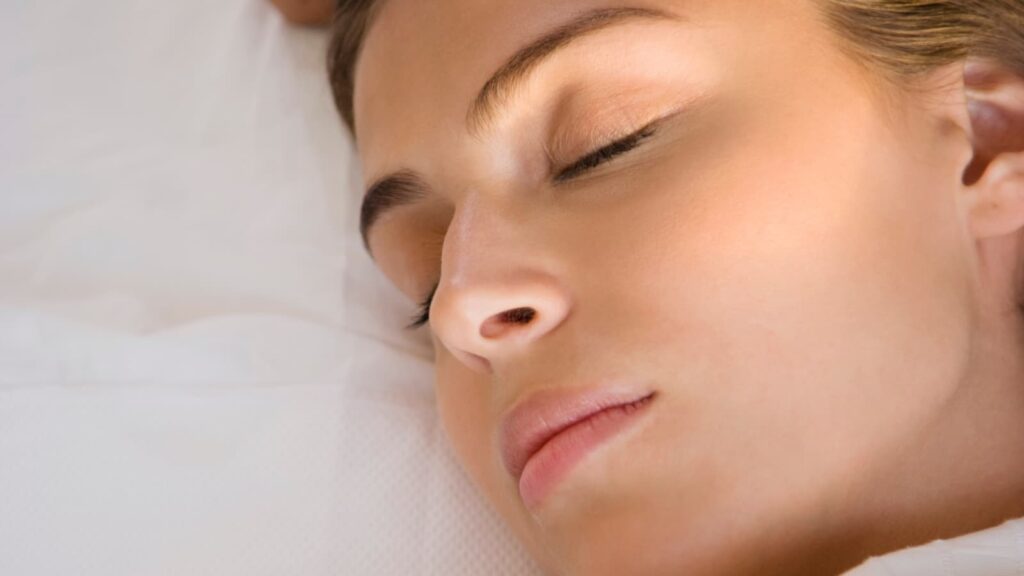
It can be easy to forget about taking your contact lenses out at night, especially if you are tired. But do you know that when you sleep in your contacts, you are starving your eyes of oxygen? That can lead to infection and promote the growth of harmful bacteria. So, no matter how tired you are, take a few minutes to remove your lenses, even if it is for a short afternoon nap. However, if you do happen to fall asleep with your contact lenses on, don’t take them out right away. Wait about 30 minutes and put some eye wetting drops in first because if your eyes are dry, you could risk pulling away from the top corneal layer with your lens.
Do not use expired solution, lenses, or drops.
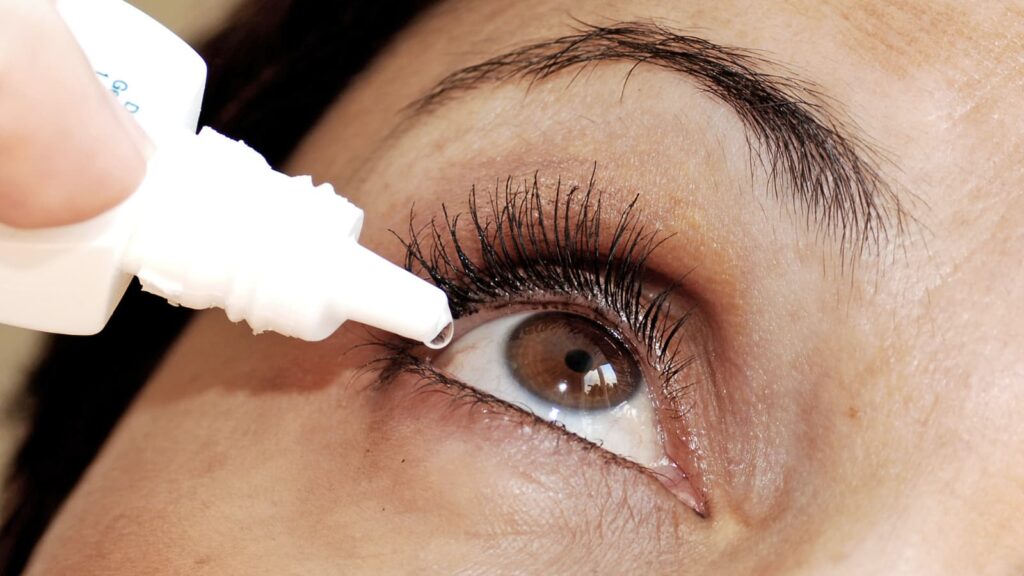
Holding on to any eye care products past their expiration date is a terrible idea. Eye drops, like any other medication, should be thrown out once they’ve passed their expiration date unless your doctor says otherwise. Contact solutions, on the other hand, have special cleaners that kill microbes. However, if they’re past their prime, they might not be as effective in cleaning and disinfecting your lenses, possibly increasing the chance of an infection.
Ensure you wear safety glasses

Are you aware that using the right eye protection can prevent 90% of accidental eye injuries? Amidst the lockdown, you may feel that it’s futile to wear eye protection. But even regular activities around the house such as repair work, need strong chemicals to clean. Also, gardening or mowing the lawn may require goggles or safety glasses to protect your eyes from flying debris and strong fumes. Similarly, you’ll require sunglasses for protection against UVA and UVB rays if you’re stepping out for any reason even during winter.
Avoid overusing redness relief eye drops.
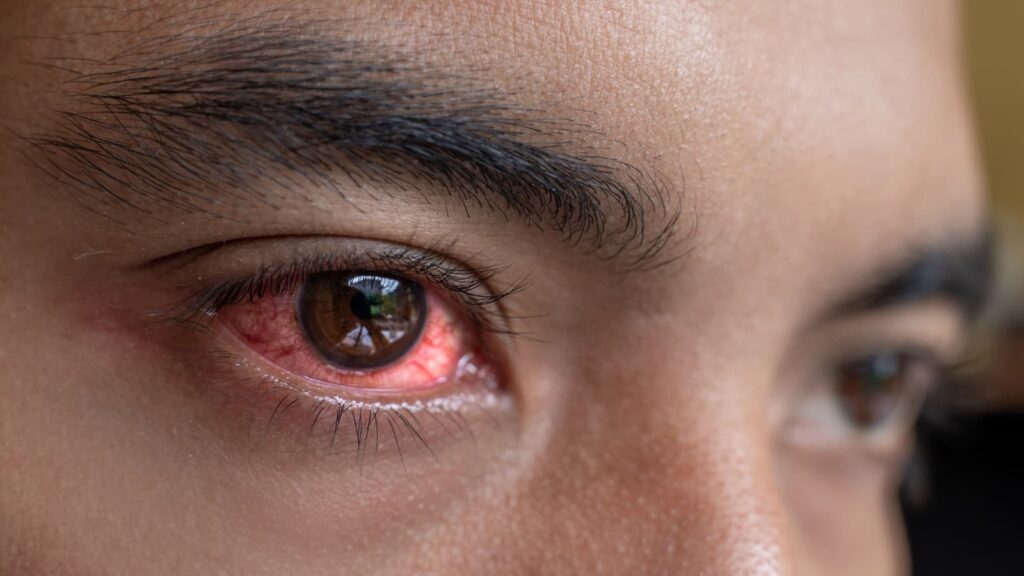
Are your eyes constantly red or irritated? Make an appointment with your optometrist to determine the root of your problem. If you’re one of those people who has come to rely on redness-reducing eye drops on an everyday basis, you may want to check long-term effects or possibly get alternative treatment. While these drops can provide temporary relief by constricting blood vessels to make your eyes look less red, they also contain chemicals and preservatives that can make your problem even worse in the long run.
Get an annual comprehensive eye examination.
It’s so easy to neglect your eye tests since eyes have no pain receptors. As a result, a condition such as an eye tumour or a broken blood vessel goes undiagnosed until it starts causing vision problems. Likewise, many eye diseases such as age-related macular degeneration (AMD) and glaucoma have no preliminary symptoms. So without early detection through an eye exam, long-term damage can often be irreparable.
Ideally, you should have your eyes tested every 18 months (sooner if you have experienced previous issues with your sight). Eye exams do more than just testing for visual acuity or detecting an eye condition. Your eyes can also reveal other conditions related to your overall health. For instance, they could indicate if you have diabetes, high blood pressure, cholesterol or even an autoimmune condition.
Generally, these things may seem simple and harmless but can lead to dangerous conditions that can affect your eye health. The last thing you want is for this lockdown to be over and you can’t go about your activities because of eye infection you could have prevented.
Call us on 0161 665 3673 to book an appointment with us now! Follow us on Facebook and Instagram @chaddertonopticians for the latest eye health news.
Sources:
https://www.vibraxlabs.com/blogs/news/eye-care-mistakes-that-can-ruin-your-vision#mistake19


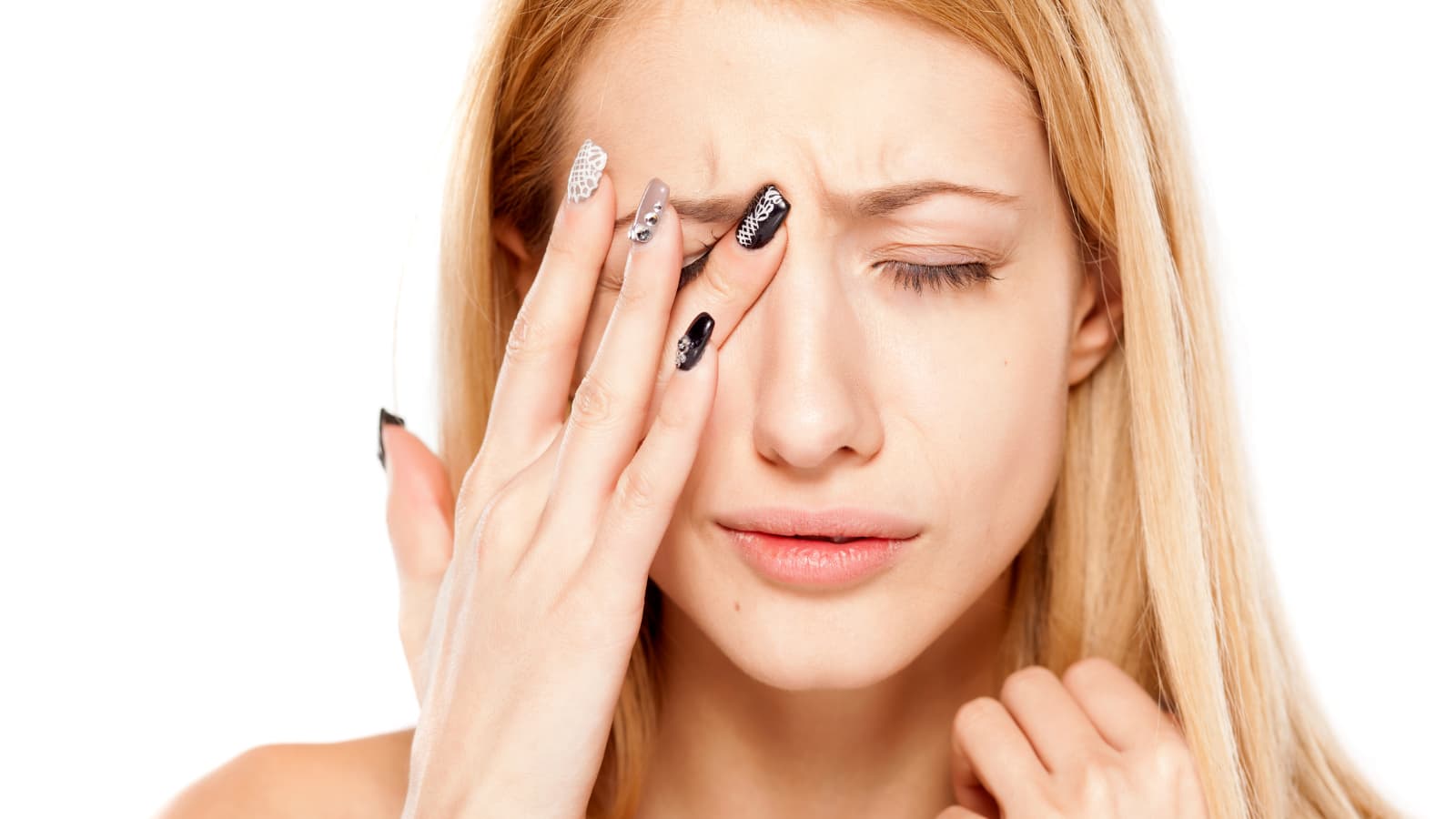
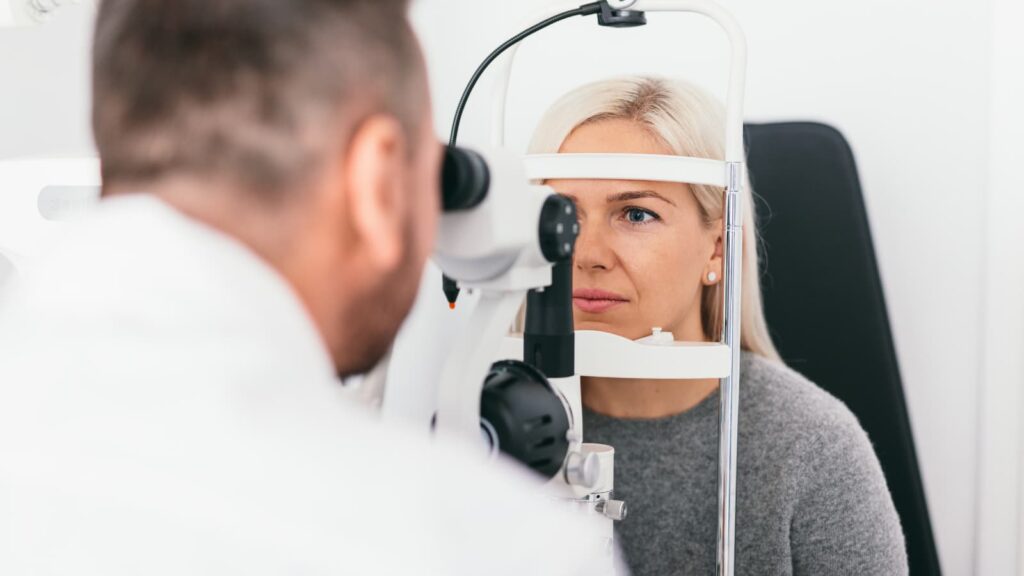
[…] (Back Vertex Distance) is the distance in millimetres between the front of your eye and the lens of your glasses. This measurement is included on any prescription where the sphere or […]